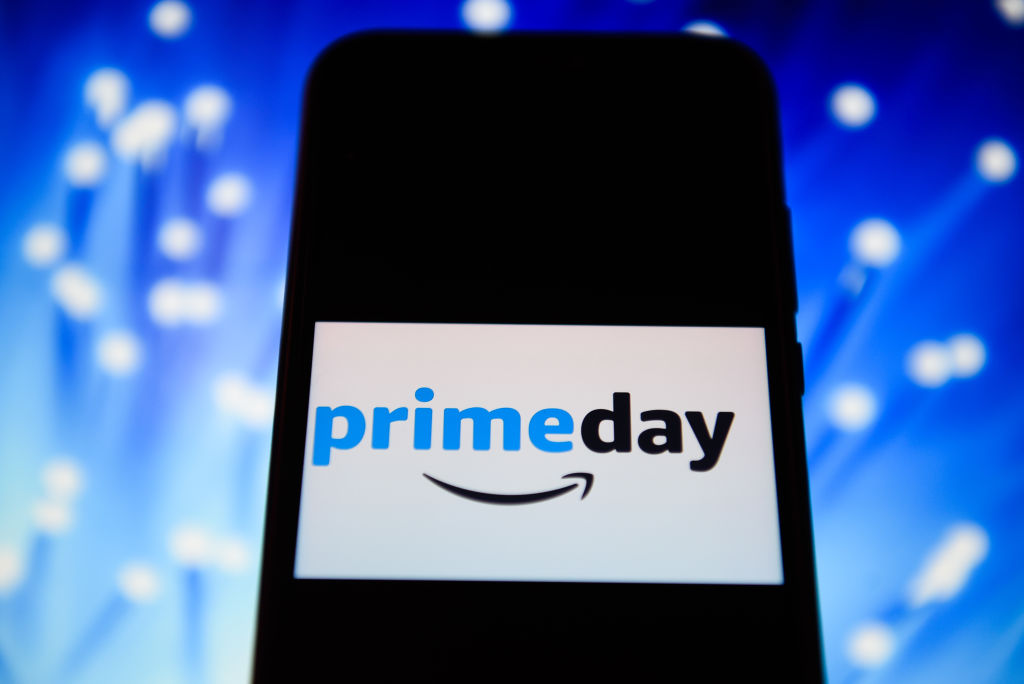Money-Smart Ways to Eat Healthy
When you're young and on a tight budget, you don't have to sacrifice your diet to keep food costs in check.

Profit and prosper with the best of Kiplinger's advice on investing, taxes, retirement, personal finance and much more. Delivered daily. Enter your email in the box and click Sign Me Up.
You are now subscribed
Your newsletter sign-up was successful
Want to add more newsletters?

Delivered daily
Kiplinger Today
Profit and prosper with the best of Kiplinger's advice on investing, taxes, retirement, personal finance and much more delivered daily. Smart money moves start here.

Sent five days a week
Kiplinger A Step Ahead
Get practical help to make better financial decisions in your everyday life, from spending to savings on top deals.

Delivered daily
Kiplinger Closing Bell
Get today's biggest financial and investing headlines delivered to your inbox every day the U.S. stock market is open.

Sent twice a week
Kiplinger Adviser Intel
Financial pros across the country share best practices and fresh tactics to preserve and grow your wealth.

Delivered weekly
Kiplinger Tax Tips
Trim your federal and state tax bills with practical tax-planning and tax-cutting strategies.

Sent twice a week
Kiplinger Retirement Tips
Your twice-a-week guide to planning and enjoying a financially secure and richly rewarding retirement

Sent bimonthly.
Kiplinger Adviser Angle
Insights for advisers, wealth managers and other financial professionals.

Sent twice a week
Kiplinger Investing Weekly
Your twice-a-week roundup of promising stocks, funds, companies and industries you should consider, ones you should avoid, and why.

Sent weekly for six weeks
Kiplinger Invest for Retirement
Your step-by-step six-part series on how to invest for retirement, from devising a successful strategy to exactly which investments to choose.
I never knew how expensive food could be until recently. After I graduated from college, I was going out and swiping a card to pay for meals like I always had. It didn't take long to realize that this was my actual money and not just my prepaid (by my parents) meal points I was spending. I was, literally, devouring my budget.
But when I tried to spend less at restaurants and cook more at home, things didn't get a whole lot better. I was saving money on food, to be sure, but I was feeling far less energetic and gaining weight. As it turns out, a steady diet of Rice-a-Roni and spaghetti is filling and very cheap but not all that nutritious. I needed to find a way to eat healthily on my intern's salary, so I spoke with Sonya Angelone, a registered dietitian-nutritionist and spokeswoman for the Academy of Nutrition and Dietetics. Now, implementing some of her ideas, I'm maintaining my tight budget for groceries but getting more, healthier meals for my money — and my clothes are fitting better. Thanks, Sonya.
Here are some healthy eating strategies for those of you who are as broke as I am. If you take some time to pay attention when making small decisions about your food every day, you'll be happier, healthier and richer for it.
From just $107.88 $24.99 for Kiplinger Personal Finance
Become a smarter, better informed investor. Subscribe from just $107.88 $24.99, plus get up to 4 Special Issues

Sign up for Kiplinger’s Free Newsletters
Profit and prosper with the best of expert advice on investing, taxes, retirement, personal finance and more - straight to your e-mail.
Profit and prosper with the best of expert advice - straight to your e-mail.
Make a Plan and Stick to It
Before you even go inside the grocery store, you need a plan, and that starts with figuring out your menu and creating a shopping list for the week. You don't have to be an Iron Chef to cook healthy meals for yourself. As long as you can turn on a burner and boil some water, you can probably manage.
Angelone suggests adding nutritious elements to meals you already know how to prepare. Take my spaghetti, for instance. Boil the pasta, and when it's a couple of minutes from being finished, add some broccoli. Drain it all together. Brown some beef, drain the fat and add it to the sauce. If you add a significant amount of veggies, you'll have enough for several meals — eating leftovers saves you money — and, as Angelone notes, "it's more filling that way."
As a rule, about half your plate should be produce, she says. So knowing some tricks to save on fruits and veggies can be a big budget booster. You can start by buying produce that's in season. It's fresher, tastier and cheaper because it hasn't had to travel as far to reach your store. "Consider buying citrus fruits, sweet potatoes and squash during football season [in the fall and winter] and berries and tomatoes during baseball season [in the spring and summer]," says Angelone. (See which fruits and vegetables are in season when at www.fruitsandveggiesmorematters.org.)
Don't stress over buying organic. While it can help you avoid pesticides in your produce, it can also be very expensive and not worth the cost for certain foods. The Environmental Working Group, a health research organization, puts out a list of fruits and vegetables with the most and least pesticide exposure. The "Clean 15," such as avocados and pineapples, have outer layers that you take off before you eat, so you can save your money and buy non-organic versions. FreshDirect, an online farm-fresh grocer, prices organic pineapples at $5.99 each, compared with $3.99 for the non-organic variety. Organic avocados go for $3.49 each, a dollar more than their non-organic counterparts. Over the course of many months, those dollars add up. If you don't think you can afford organic food at all, just buy regular produce and wash it thoroughly. "It's better to eat non-organic produce than to eat no produce at all," says Angelone.
Also, take some time to see what's on sale at your local stores, and schedule your meals accordingly. Before long, you'll begin to see price patterns for the foods you buy frequently. That way, you can start buying your staple foods only when they're on sale. For example, I know my local grocery puts frozen pizza dough on sale every other week, so I plan to make my easy meat-and-veggie pizzas around those times. (Also see 10 Ways to Save Money on Groceries without Coupons.)
Shop Smart
With a plan in place, you're ready to head to the store, but be sure you eat before you go. Shopping hungry leaves you vulnerable to marketing and impulse-shopping, says Angelone. That's when you end up either buying the unhealthy, on-sale food on the ends of aisles or buying too much food, which then goes to waste.
At the store, check unit prices. Items with higher list prices might actually be better values. For example, a big bottle of apple juice might cost more up front than a pack of three juice boxes, but each ounce of the former actually costs less.
Remember, too, that any time someone else puts time into preparing your food, you're going to pay more for it. Is it worth it to pay extra for sliced cheddar cheese when you can buy a block and slice it yourself at home? Probably not. My grocery store in Washington, D.C. charges $7.99 for a two-pound block of the same cheddar they slice at the deli and sell for $8.99 a pound. Is it worth it to buy prepackaged, frozen spaghetti with meat sauce? Definitely not. One serving of Stouffer's spaghetti with meat sauce costs $3.39 at my grocery. Meanwhile, a box of spaghetti, a jar of sauce, a pound of broccoli and a pound of ground beef cost me $6.82. Spread across four large meals, that's $1.64 a serving, to say nothing of the much richer nutritional value I'm getting.
Liquid Savings
Finally, time for a drink. You can get all the energy and nutrition you need from food and quench your thirst with plain water. All those other drinks — beer, wine, energy drinks, sports drinks, soda and even juice — equal extra money and extra calories, so drink them sparingly.
Of course, when an occasion calls for libations (as occasions often do for us young people), we're not suggesting you drink water instead. Just have some along with your booze of choice, says Angelone. Watering down your alcohol intake not only saves you in cost and calories, it can also save you from lowered inhibitions — which can result in questionable dance moves and unnecessary and unhealthy purchases. We all know from experience that when you're drunk, you're as likely to dance on a table as you are to buy, say, five 7-Eleven taquitos at 3 in the morning. What? Just me?
Profit and prosper with the best of Kiplinger's advice on investing, taxes, retirement, personal finance and much more. Delivered daily. Enter your email in the box and click Sign Me Up.

Ryan joined Kiplinger in the fall of 2013. He wrote and fact-checked stories that appeared in Kiplinger's Personal Finance magazine and on Kiplinger.com. He previously interned for the CBS Evening News investigative team and worked as a copy editor and features columnist at the GW Hatchet. He holds a BA in English and creative writing from George Washington University.
-
 How to Get the Fair Value for Your Shares in This Situation
How to Get the Fair Value for Your Shares in This SituationWhen a sale of substantially all corporate assets is approved by majority vote, shareholders on the losing side of the vote should understand their rights.
-
 Dow Leads in Mixed Session on Amgen Earnings: Stock Market Today
Dow Leads in Mixed Session on Amgen Earnings: Stock Market TodayThe rest of Wall Street struggled as Advanced Micro Devices earnings caused a chip-stock sell-off.
-
 How to Watch the 2026 Winter Olympics Without Overpaying
How to Watch the 2026 Winter Olympics Without OverpayingHere’s how to stream the 2026 Winter Olympics live, including low-cost viewing options, Peacock access and ways to catch your favorite athletes and events from anywhere.
-
 21 Last-Minute Gifts for Grandparents Day 2025 to Give Right Now
21 Last-Minute Gifts for Grandparents Day 2025 to Give Right NowHoliday Tips Last-minute gifting is never easy. But here are some ideas to celebrate Grandparents Day.
-
 Texas Sales Tax-Free Weekend 2025
Texas Sales Tax-Free Weekend 2025Tax Holiday Here's what you needed to know about the Texas sales tax holiday.
-
 Alabama Tax-Free Weekend 2025
Alabama Tax-Free Weekend 2025Tax Holiday Here’s everything you need to know about the 2025 back-to-school Alabama sales tax holiday.
-
 The Sweet 23: States Where Twix and Kit Kat Avoid the ‘Candy Tax’
The Sweet 23: States Where Twix and Kit Kat Avoid the ‘Candy Tax’State Taxes There’s something spooky this Halloween, and it’s not just the ghouls. Find out if your state’s sales tax takes a bite out of sweet savings.
-
 Florida Back-to-School Tax-Free Holiday 2025
Florida Back-to-School Tax-Free Holiday 2025Sales Taxes The new tax-free holiday in Florida brought month-long savings on computers, clothing and other school supplies.
-
 Five Reasons You Shouldn't Shop Amazon's Prime Big Deal Days
Five Reasons You Shouldn't Shop Amazon's Prime Big Deal DaysSmart Buying Are Amazon Prime Big Deal Days still a good deal? We'll break it down.
-
 Debit Cards vs Charge Cards
Debit Cards vs Charge Cardscredit & debt Whether sticking to a budget or reaping big rewards, understand whether debit cards vs charge cards are right for you.
-
 Four Smart Steps To Take Before Buying Your First Home
Four Smart Steps To Take Before Buying Your First Homehome Buying your first home can be daunting. Here are four things you need to do years before you start house-hunting to prepare financially for the biggest purchase of your life.